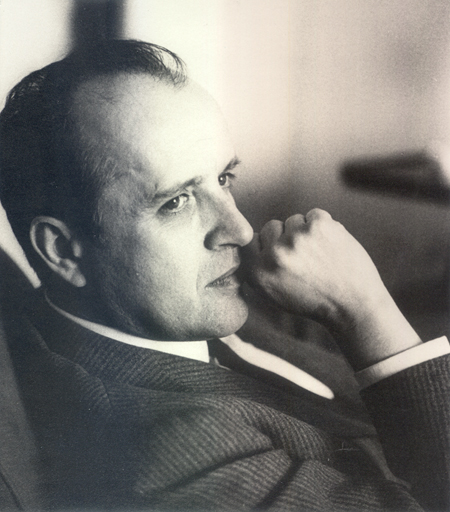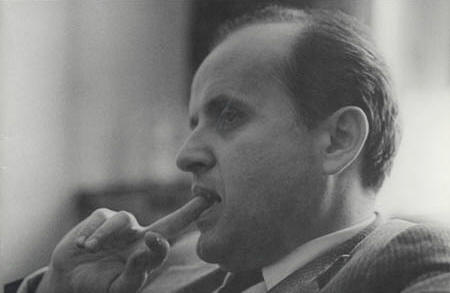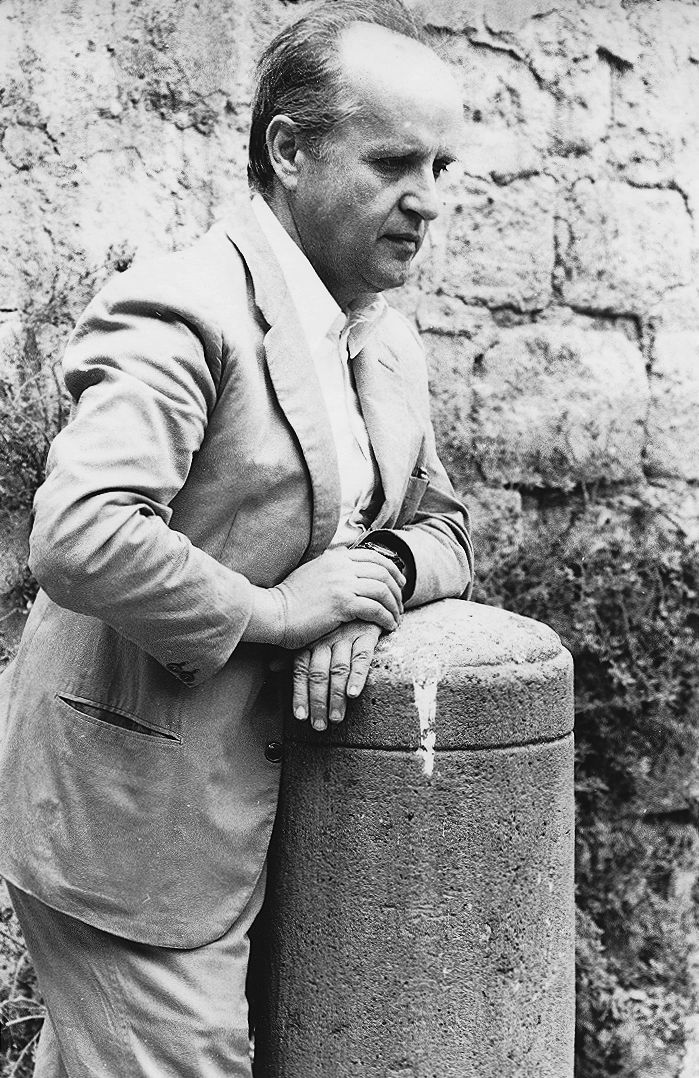<Back to Index>
- Inventor Samuel Crompton, 1753
- Composer Nino Rota, 1911
- Major General of the Union Army George Brinton McClellan, 1826
PAGE SPONSOR


Nino Rota (December 3, 1911, Milan – April 10, 1979, Rome) was a world renowned Italian composer and academic who is best known for his film scores, notably for the films of Federico Fellini and Luchino Visconti. He also composed the music for two of Franco Zeffirelli's Shakespeare films, and for the first two films of Francis Ford Coppola's Godfather trilogy, receiving for the latter the Academy Award for Best original Score in 1974.
During
his long career Rota was an extraordinarily prolific composer,
especially of music for the cinema. He wrote more than 150 scores for
Italian and international productions from the 1930s until his death in
1979 — an average of three scores each year over a 46 year period, and
in
his most productive period from the late 1940s to the mid-1950s he
wrote as many as ten scores every year, and sometimes more, with a
remarkable thirteen film scores to his credit in 1954. Alongside this
great body film work, he composed ten operas, five ballets and
dozens of other orchestral, choral and chamber works, the best known
being his string concerto. He also composed the music for many theatre
productions by Visconti, Zeffirelli and
Eduardo de Filippo as
well as maintaining a long teaching career at the Liceo Musicale in
Bari, Italy, where he was the director for almost 30 years. Born
into a musical family in Milan,
Rota was a renowned child prodigy — his first oratorio, L'infanzia di San
Giovanni Battista, was written at age 11 and performed in Milan and
Paris as early as 1923; his three-act lyrical comedy after Hans Christian
Andersen, Il
Principe Porcaro, was composed when he was just 13 and published in
1926. He studied at the Milan conservatory there under Giacomo Orefice
and then undertook serious study of composition under Ildebrando
Pizzetti and Alfredo Casella at the Santa Cecilia
Academy in Rome,
graduating in 1930. Encouraged
by Arturo Toscanini,
Rota moved to the United States where he lived from 1930 to 1932. He
won a scholarship to the Curtis Institute of Philadelphia,
where he was taught conducting by Fritz Reiner and had Rosario Scalero as an instructor in
composition. Returning
to Milan, he wrote a thesis on the Renaissance composer Gioseffo Zarlino.
Rota
earned a degree in literature from the University of Milan,
graduating in 1937, and began a teaching career that led to the
directorship of the Liceo Musicale in Bari, a
title he held from 1950 until 1978. In
his entry on Rota in the 1988 edition of The Concise Baker's
Biographical Dictionary of Composers and Musicians, music scholar Nicholas
Slonimsky described
Rota as "brilliant" and stated that his musical style: During
the 1940s, Rota composed scores for more than 32 films, including
Renato Castellani's Zazà (1944). His association
with Fellini began with Lo sceicco
bianco (1952),
followed by I vitelloni (1953) and La strada (1954). They continued to
work together for decades, and Fellini recalled: The
relation Fellini - Rota was so strong that even at the Funerals of
Fellini, Giulietta Masina,
Fellini's wife, asked the trumpeter
Mauro Maur to play the "Improvviso
dell'Angelo" of Rota in the Basilic S. Maria degli Angeli e dei Martiri
in Rome. Rota's
score for Fellini's 8½ (1963) is often cited as
one of the factors which makes the film cohesive. His score for
Fellini's Juliet of the
Spirits (1965)
included a collaboration with Eugene Walter on
the song, "Go Milk the Moon" (cut from the final version of the film),
and they teamed again for the song "What Is a Youth?", part of Rota's
score for Franco
Zeffirelli's Romeo and Juliet.
In all, Rota wrote scores to more than 150 films. Rota
wrote numerous concerti and other orchestral works as well as piano,
chamber and choral music, much of which has been recorded and released
on CD. After his death from heart
failure in 1979, Rota's music was the subject of Hal
Willner's 1981 tribute
album Amarcord Nino Rota, which featured several at the time
relatively unknown but now famous jazz musicians. Gus
Van Sant used some of Rota's music in his 2007 film Paranoid Park and director Michael
Winterbottom used several Rota selections in the 2005
film Tristram
Shandy: A Cock and Bull Story. Danny
Elfman frequently cites Nino Rota as a major
influence. Director Mario
Monicelli filmed a documentary Un amico magico: il maestro Nino Rota which featured interviews with Franco
Zeffirelli and Riccardo
Muti (a student under Rota at Bari
Conservatory), and was followed by a German documentary Nino Rota - Un maestro della musica. Both explored film and concert sides of
the composer. His
1955 opera Il cappello di
paglia di Firenze (The
Italian Straw Hat), an adaptation of the play by Eugène
Labiche was
presented by the Santa Fe Opera in 1977. In 2005 his opera Aladino e la
lampada magica (Aladdin
and the Magical Lamp), with Cosmin
Ifrim in the title
role, was performed in German translation at the Vienna State
Opera and
released on DVD. Written for a radio production by RAI in 1950, his short opera, I due timidi (The
Two Timid Ones), was presented
by the Santa Fe Opera as part of their pre-season "One-Hour Opera"
program in May/June 2008. Federico Fellini recalls his first chance
meeting with Rota: A
critic conversing with Nino Rota at the age of eleven just prior to a
performance of his oratorio, The
Childhood of St. John the Baptist, in 1923: On
his friendship with Igor Stravinsky: Nino
Rota reflecting on the unhappiness of others: Federico Fellini on Nino Rota:


